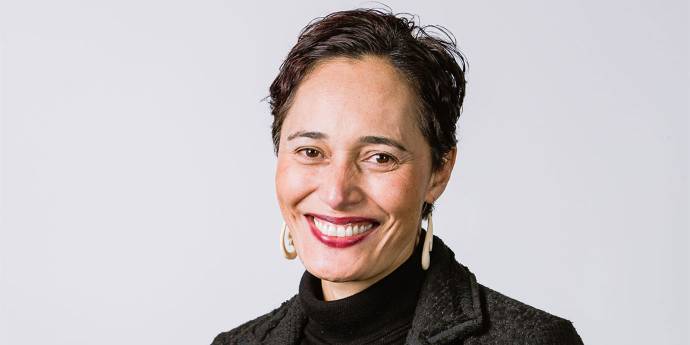Chartered Membership is about refining your contribution

Waikato-based Bella Takiari-Brame (CMInstD) says its family legacy that drives her.
“My greatest role model was my grandmother who died when I was three,” she says.
Her grandmother was a midwife and nurse who passed away in her 80s. In the early 20th century she was on the ground, nursing communities through the Spanish flu. Later, in the 50s and 60s she become an advocate for Māori in hospitals.
“Without the intention of entering the medical industry or being a nurse or a doctor myself, in a roundabout way I’ve ended up in that sector after leading my Iwi through Covid response during 2020 with the realisation that I am passionate about ensuring equity in health,” she says of her board roles for Braemar Hospital and ACC.
Takiari-Brame is a chartered accountant by trade and worked her way up to executive roles. She is now a full-time director who also sits as Chair of The Lines Company and Chair of Te Nehenehenui Trust.
But working in governance hasn’t always been top of her agenda. Her interest developed after she was voted onto her iwi board back in 2015.
“It’s about understanding how that’s affecting Māori people because they’re the ones disproportionately affected by energy poverty. So, how do we ensure they are not further disadvantaged?”
When she made the move to a career in governance, the mother of three was working as an interim CE and looking for work-life balance. She decided governance would allow her to bring her skills in audit, risk and finance to the table, while also working across different industries.
When speaking about her role as Chair of The Lines Company, Takiari-Brame is a big believer in infrastructure as the key to ensuring thriving communities. She lists renewable energy, addressing climate change and sustainability as areas at the forefront of her mind.
But she adds, New Zealand’s transition to a future of pure green energy could see potential risk in creating greater inequality and those likely to be impacted are already experiencing what she describes as ‘energy poverty.’
“It’s about understanding how that’s affecting Māori people because they’re the ones disproportionately affected by energy poverty. So, how do we ensure they are not further disadvantaged?”
Takiari-Brame transitioned to full time governance in February. With a few board roles already under her belt, she says it was after participating in the IoD Mentoring for Diversity programme that empowered her to be more deliberate about her choices and the boards she wanted to be on.
“I really want to ensure that my contribution is able to make a difference, ultimately that’s my biggest goal,” she says.
While she comes with solid expertise in audit and risk, she also brings deep knowledge around Te Ao Māori, which she says allows other directors at the table to feel comfortable asking questions on all things Māori when they need to.
“I just think it makes the board more empowered around equitable outcomes for Māori and understanding how Māori think, while also changing the mind set around the mainstream models that currently exist in Aotearoa,” she says.
But there is also a time and place for the conversation to be had and boards are constantly confronted with a wide range of issues that need to be addressed.
As the Chair of two boards, she says becoming a chartered member has been invaluable.
“I think you have a lot more to offer if you’ve got a bit of governance under your belt when you do the residential programme (CDC) versus someone who is new and green,” she says.
She adds those who choose the chartered membership path are already in a space where they take their role very seriously.
Takiari-Brame has also experienced a shift in mind set since becoming a chartered member, which she says is about honouring her journey so far, but also having a responsibility as a director or trustee to do the right thing.
“I sit alongside some amazing directors and it’s more about learning to ask the right questions, more probing...learning to read people better. I just want to refine my ability and contribution at board level,” she says.
“You’re a role model in the governance space as a chartered member and it’s something in the front of my mind now when I’m sitting in that space.”